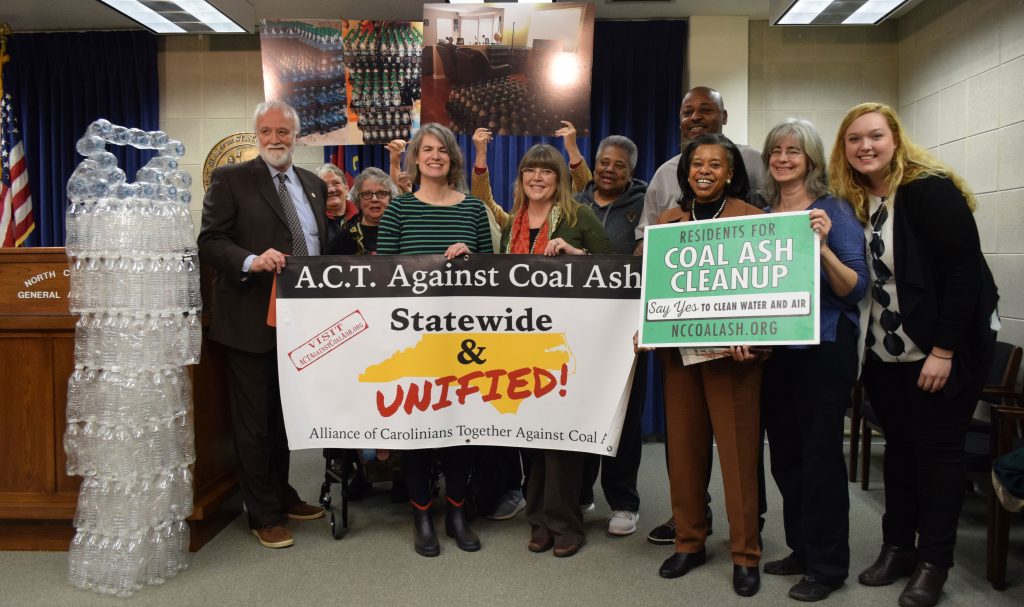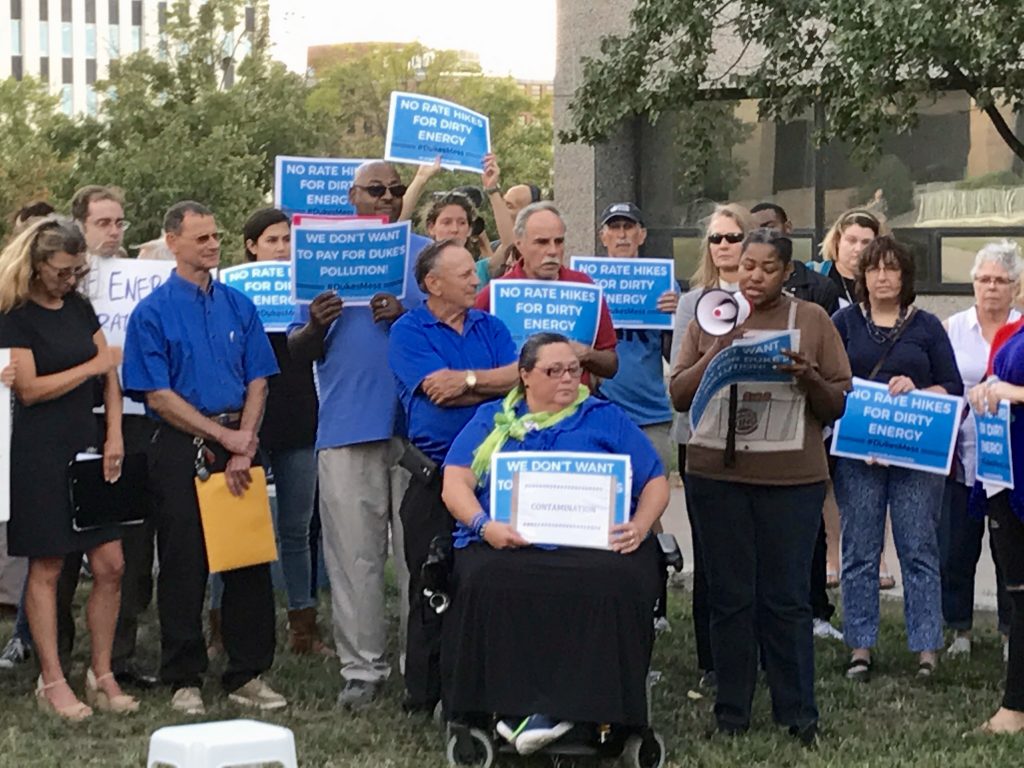Cleaning Up Coal Ash
For well over a century, power plants across the country have burned coal to generate electricity. And for just as long, leftover coal ash has been dumped in open, unlined pits near the power plant, usually located on a river or lake. Every year, U.S. power plants produce 130 million tons of coal ash, which is the second largest waste stream in the country after municipal garbage.
Coal ash concentrates the toxic heavy metals found in coal, including arsenic, mercury, lead and selenium. Stored in unlined, wet impoundments, coal ash has been leaking these toxics into our groundwater and surface waters for years. Sometimes these impoundments collapse — with disastrous results.
Yet government regulations for coal ash management are either non-existent or sparse, and there is little enforcement of the regulations that do exist. In North Carolina, this lack of oversight — and the complicity between state regulators, elected officials and Duke Energy — came to a boiling point in February 2014 when one of Duke’s coal ash impoundments spilled 39 million tons of ash into the Dan River.
Citizens living near North Carolina’s 33 coal ash impoundments — all of which have leaked — have fought for transparency from Duke and the state, and for cleanup of the pollution that threatens their property value, health and family. Their actions forced this issue into the headlines of news networks and to the forefront of environmental justice conversations in the United States.
Appalachian Voices stood with these communities as we worked for years to compel Duke Energy and the N.C. Department of Environmental Quality to excavate coal ash from all the North Carolina sites and dispose of it either in lined, dry landfills, away from waterways, or by recycling it for concrete or other uses, provided it’s done in a manner that protects public health and the environment.
On Jan. 2, 2020, North Carolina announced a historic settlement with one of the state’s most powerful corporations and polluters, Duke Energy. The settlement requires Duke to move nearly 80 million tons of toxic coal ash at six of its power plants to properly lined landfills onsite or recycle it.

Learn information about specific coal ash impoundments in the South, including health threats and safety ratings:
Additional Resources
Fact sheets, videos, links to academic research, and more
Sign Up to Act
Help us protect the health of our communities and waterways.
Latest News
1,000 days on bottled water
Last week marked the 1,000th day that hundreds of families in North Carolina have had to use nothing but bottled water for drinking, cooking and bathing because their well water is likely contaminated by one of Duke Energy’s leaking coal ash ponds.
Appalachian solar jobs on the line in Trump’s Suniva decision
Guest blogger Kyle Pennell of PowerScout takes a look at President Trump’s upcoming January 26 ruling regarding tariffs on solar panel imports and the potential impact his decision could have either way.
Coalition sues Va. water board over Atlantic Coast Pipeline
Richmond, VA –A coalition of community and conservation…
Dominion attempts another legislative end-run of regulatory process to lock in long-term profits
A proposal from Dominion Energy introduced today in…
Citizens groups applaud legislation on natural gas pipelines introduced by Southwest Virginia lawmakers
Three legislators from Southwest Virginia have introduced several…
Make a difference in N.C. in the new year!
Duke Energy is seeking a damaging rate hike of nearly 17% that would hit low-income folks the hardest and lower incentives for solar and energy efficiency — all while forcing ratepayers to cover the cost of Duke’s coal ash mistakes. Show up and speak out!








